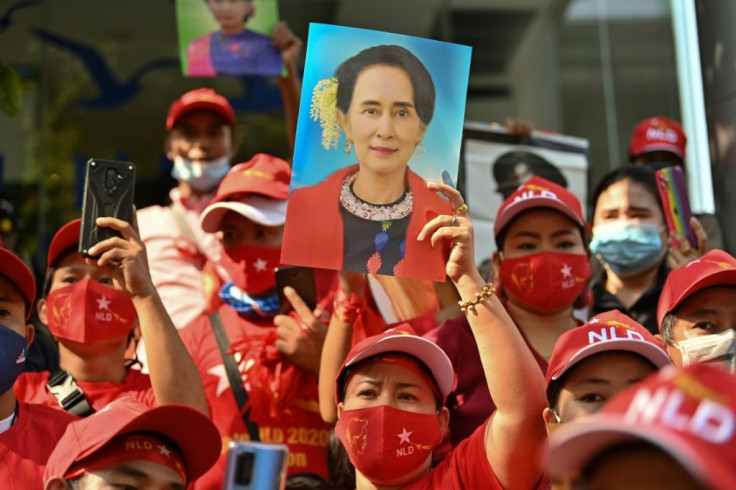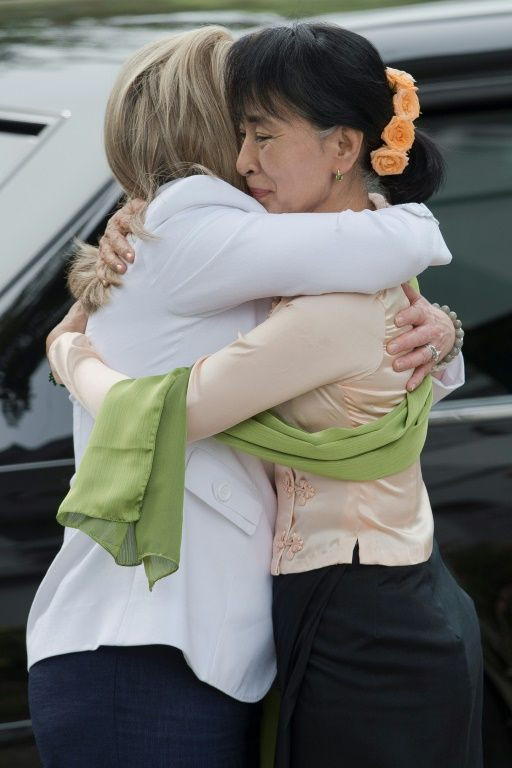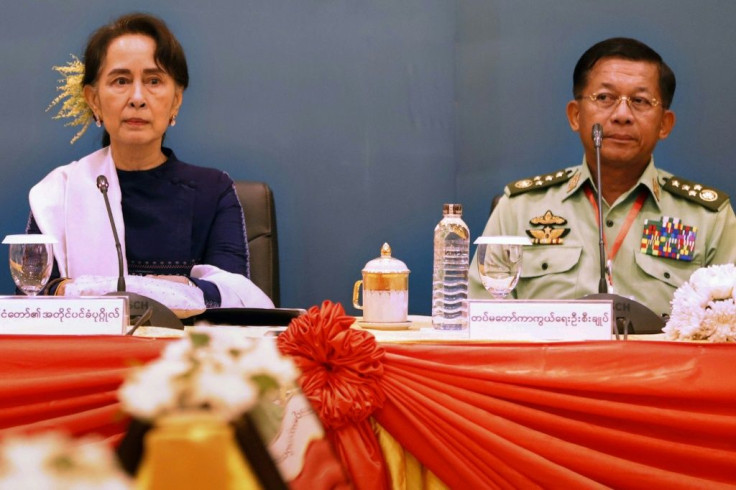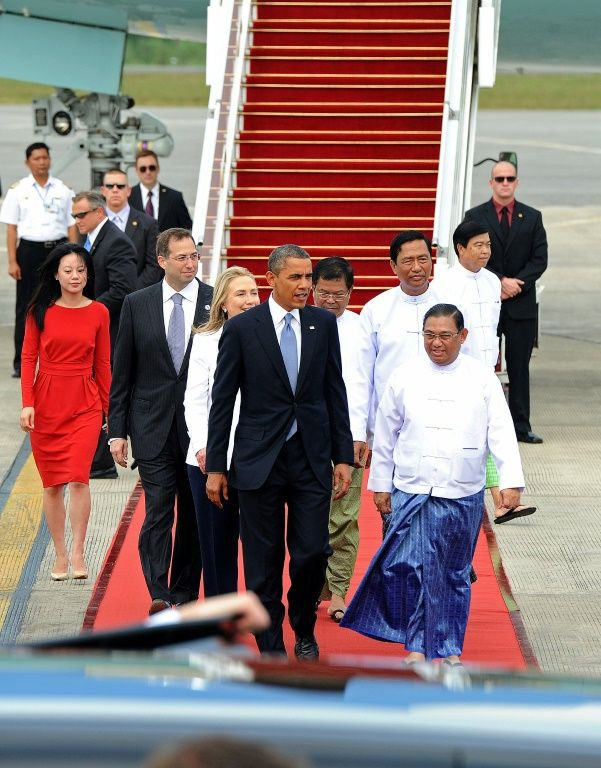Myanmar Coup Tests Biden Democracy Push But With Few Options
Myanmar's military coup marks an early test case of President Joe Biden's determination to advocate democracy but, unlike a decade ago when the United States nurtured a transition there, he has limited options.
The rise of democracy in Myanmar had initially been hailed as a key achievement of former president Barack Obama, under whom Biden served as number two, representing an opening of a long-closed nation that had been in rival China's orbit.
But Aung San Suu Kyi, Myanmar's civilian leader who was detained with others Monday, had been rapidly losing Western support as the Nobel laureate stayed reticent -- some argue so as not to antagonize the military -- about a brutal campaign against the mostly Muslim Rohingya minority.

Biden in a forceful statement Monday warned of a return of sanctions and steadfastly backed the principle of democracy -- in line with his campaign promises as he vowed to turn the page from his predecessor Donald Trump, who praised autocrats and unsuccessfully tried to overturn his own election defeat.
"The United States will stand up for democracy wherever it is under attack," Biden said, demanding that the military in the nation also known as Burma "immediately relinquish the power they have seized."

Derek Mitchell, the first US ambassador to Myanmar after the opening, said the United States no longer enjoyed the same leverage.
"I think the Rohingya crisis set things back substantially -- for good reason, obviously, in that we had to speak out and act against the kind of genocide that occurred -- but that came at the expense of relationships," he said.
Mitchell, now president of the National Democratic Institute, urged coordination with US allies and said that the world needed to respect the overwhelming victory of Suu Kyi's National League of Democracy in last year's elections.

The West "may have considered her this global icon of democracy and that luster is off. But if you care about democracy in the world, then you must respect the democratic choice and she is clearly that."
"It's not about the person; it's about the process," he said.
In a growing rarity in Washington, Myanmar policy has wide bipartisan consensus with Mitch McConnell, the top Senate Republican, long a vocal supporter of Suu Kyi.
Suzanne DiMaggio, a senior fellow at the Carnegie Endowment for International Peace, said the Biden administration should resist immediately imposing sanctions -- a nearly daily tool of the United States under Trump -- and try diplomacy.

"Myanmar is an unexpected early test for the Biden administration, which has emphasized human rights and democracy as cornerstones of US foreign policy," she said.
"Quickly dispatching a senior envoy to Naypyidaw carrying rare bipartisan congressional backing would be an appropriate next step," she said, referring to Myanmar's 15-year-old capital.
When Myanmar began its democratic transition, the United States -- led by secretary of state Hillary Clinton, who paid a landmark visit in 2011 -- coaxed reformists within the junta with promises of economic engagement, sanctions relief and an alternative for highly nationalist rulers to reliance on China.
The United States has less to offer a military chief whose ambitions led him to turn his back on a decade of change.
Myanmar's top general and coup leader, Min Aung Hlaing, is already under US travel and financial sanctions for the campaign against the Rohingya, which the United States has described as ethnic cleansing.
"It's easy to make statements but hard to figure out what to do next" said Murray Hiebert, a Southeast Asia expert at the Center for Strategic and International Studies.
"What more do you do? I guess you can sanction a few military companies. That might bring a little pressure because they are so deeply burrowed into so many sectors of the economy," he said.
Key nations with which the United States could coordinate are Japan and India, close US partners that enjoy warm relations with Myanmar, with New Delhi days earlier shipping 1.5 million doses of Covid-19 vaccine.
China also developed cordial ties with Myanmar's civilian leadership, which appeared more interested in Beijing's massive Belt and Road infrastructure-building blitz than the insular and sometimes paranoid generals.
"One thing that is ironic is that I think China actually had much better relations with Aung San Suu Kyi than they are going to have with the military," Hiebert said.
But with the West set to tighten the screws, Myanmar's new junta may have no choice but to lean on China.
Biden has promised a renewed focus on its allies and many in Southeast Asia have been eager to see Washington as a hedge against Beijing.
"What happened in Myanmar just instantly makes that more difficult," Hiebert said.
© Copyright AFP 2024. All rights reserved.




















